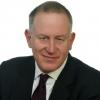| Online: | |
| Visits: | |
| Stories: |

| Story Views | |
| Now: | |
| Last Hour: | |
| Last 24 Hours: | |
| Total: | |
How Vladimir Putin Came to Power [FULL Documentary]
By: Brent Parrish
The Right Planet

The story of Russia’s El Presidente for Life (apparently), Vladimir Putin, is intriguing, to say the least. For over 15 years, Vladimir Putin has been the de facto supreme leader of the Russian Federation.
Via WikiPedia:
Vladimir Vladimirovich Putin has been the President of Russia since 7 May 2012, succeeding Dmitry Medvedev. Putin previously served as President from 2000 to 2008, and as Prime Minister of Russia from 1999 to 2000 and again from 2008 to 2012.
The people (i.e. “the family”) behind Putin’s rise to power remain in the shadows, and are a mystery to many.
At around the 43:30 min. mark is a clip of Vladimir Putin stating he will ask the Duma to “reinstate Aleksandrov’s music”—meaning, he asked the Russian Parliament to reinstate the national anthem of the Soviet Union, originally written for Josef Stalin.
One Russian political party that put its support behind Putin was known as the “Fatherland” party. An interesting twist (i.e. dialectic), considering the “former” Soviet Union has long been known as the “Motherland.”

Via SnipView.com (emphasis added):
[OBP] was formed from the movement Fatherland, chaired by the Mayor of Moscow, Yuri Luzhkov, and the movement All Russia, chaired by regional Presidents of the Republics of Tatarstan, Mintimer Shaimiev, of Bashkortostan, Murtaza Rakhimov, of Ingushetia, Ruslan Aushev, and the Governor of St. Petersburg, Vladimir Yakovlev. In his founding Congress, that took place on 28 August 1999, their first chairman elected were Yevgeny Primakov and Yury Luzhkov.
The party took part in the 1999 State Duma election, being led by Yevgeny Primakov, Yury Luzhkov and Vladimir Yakovlev. During the pre-election debates, the block suffered from ‘black public relations’ campaign in Boris Berezovsky-controlled media and competition with the rival conservative Unity Party of Russia. ‘Fatherland’ supported the election of Vladimir Putin as President of Russia in 2000.
In 1 December 2001 a joint congress of rival party Unity and Fatherland-All Russia decided to merge both parties into a single new political party, United Russia. In the IV Congress of Fatherland, at 9 April 2002, it was decided to disband the organization.


Who would’ve ever thunk that the gay rights movement and the “Fatherland” have something in common?

Well, if anything, it makes for a colorful tale … does it not?
Get Trevor Loudon’s NEW book: Barack Obama and the Enemies Within
Source: http://www.trevorloudon.com/2015/07/how-vladimir-putin-came-to-power-full-documentary/



